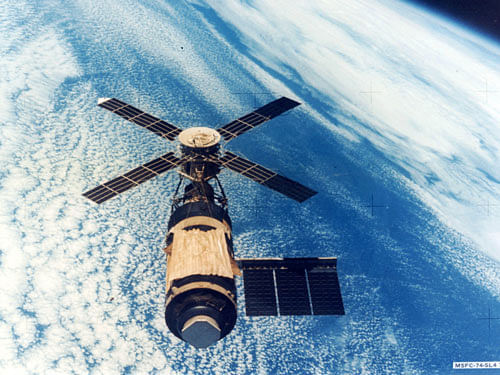
Almost half a century after sending the first sounding rocket to space, India has initiated a process to evolve a national space law, though the details remain sketchy.
“In January 2015, we are going to have a workshop on the proposed national space law. We are working with a Hyderabad-based institute and the International Institute of Space Law School. I cannot say anything more,” Indian Space Research Organisation (Isro) Chairman K Radhakrishnan said here on Tuesday.
At the moment, Isro is guided by the Satcom policy and national remote sensing policy besides international agreements on the peaceful use of outer space.
One of the purposes could be regulating entry of private players in the space, sources said. The challenge is to regulate commercial space activities in accordance with international laws.
Though the Satcom policy allows private players’ entry into the satellite market, Zee group-backed Agrani Satellite Services Ltd remains the sole Indian private satellite venture so far.
With expanding base of direct-to-home television as well as GIS services, the space market for the private sector has begun to expand.
The Central government, too, is pushing for more use of space. “As many as 65 departments now use space-based applications in planning, policy making and monitoring,” Radhakrishnan said.
Security experts told Deccan Herald a national law would help New Delhi push for an international legal regime to ensure that space remained a global common for peaceful use by every nation.
Officials associated with security establishment said a legal framework could be
an instrument to push for a more robust international law in space for checking countries like China that shocked the world with its anti-satellite test in 2007.
The A-Sat test served two purposes – showcasing Beijing’s ability to strike satellites in the geo-synchronous orbit at an altitude of 36,000 km and creating space debris that can damage other satellites, including Indian assets.
“There are nearly 15,000-16,000 space debris. Many of them are created intentionally. There are forecasts on the proximity of these debris to Indian satellite and we want to ensure security of our satellites,” Radhakrishnan said.